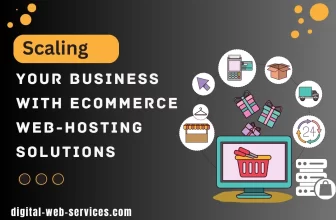
The outbreak of COVID-19 will likely become one of the most prominent events of 2020. With the motto “Stay Home. Stay Safe” people made social distancing and cities lockdown the new norm of their lives. The pandemic couldn’t help affecting businesses across the globe by creating an unfavorable climate, and the e-commerce industry is no exception. Lots of companies face temporary closure, experience a decrease in sales, and their stuff faces months of financial worry.
As the virus knows no borders, both the human and commercial impacts will continue to spread. As such, even the e-commerce giants from the Fortune 1000 list are seeing coronavirus supply chain disruptions. Not to mention small start-ups that have to struggle with what is left from their strength to keep the lights on.
COVID-19 and Customers Behaviour
The pandemic is definitely changing the way people make purchasing decisions. The virus-related crisis makes people switch to buying offline since they have to avoid physical stores. According to the latest research made by eMarketer and Business Insider Intelligence, 74% of US respondents claimed that they are likely to avoid public places including malls and shopping centers if the situation around COVID-19 gets worse. Well, that didn’t take very long.
In the middle of the March, retailers began taking necessary steps to protect both their customers and employees against the alarming threat by closing their physical stores. One after the other, retailers have begun to close their brick-and-mortar stores, not leaving the customers any choice besides switching to online mode.
One would think that this coronavirus pandemic period is prosperous times for e-commerce businesses. But it is not cut and dried. Even though the customers spend more time at home, shopping behaviors have not yet shifted worldwide (Italy is the only exception).
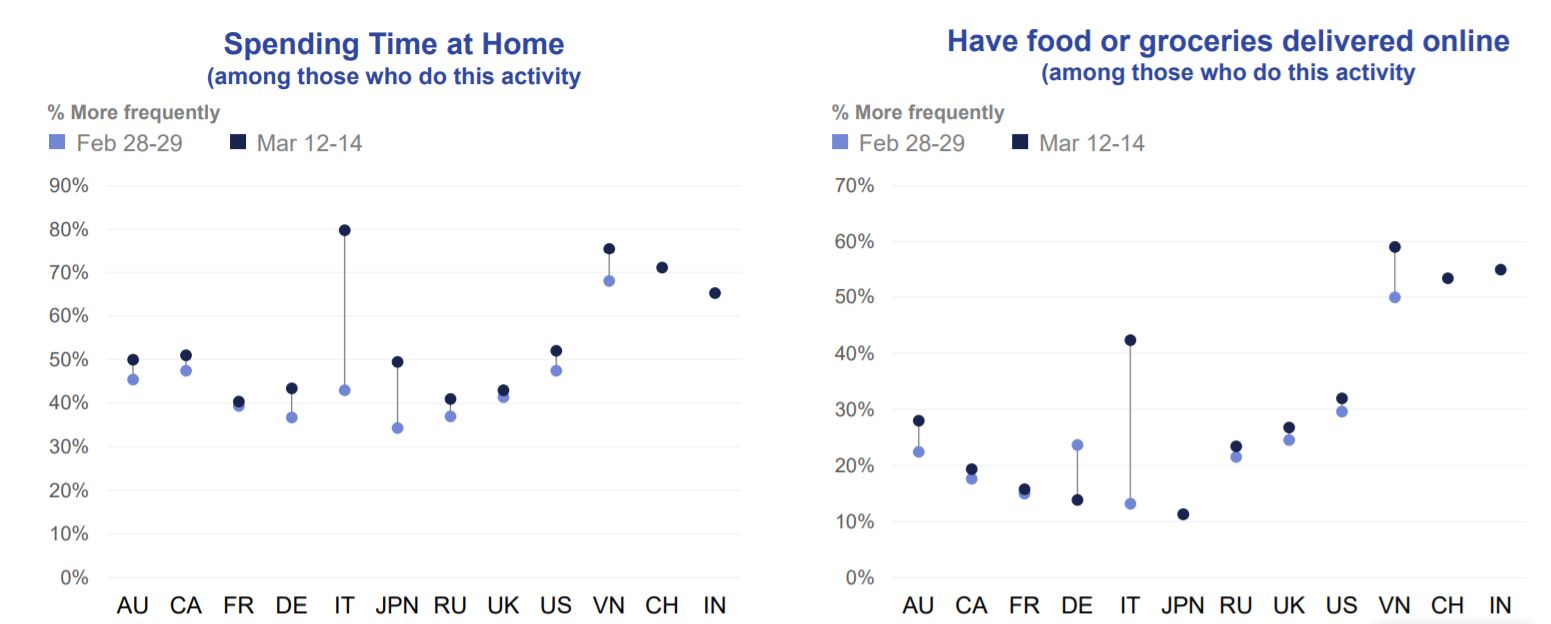
According to the Bloomberg Report, customers caged up at homes are not rushing to make use of e-commerce stores as an escape. 64% of retailers haven’t noticed a shift toward their e-commerce stores when the virus came to their countries.
The Challenges E-commerce Faces in Light of COVID-19 Pandemic
In the perfect world, online stores have to benefit from the “new world order” since they are already well-positioned to serve customer needs. It would seem that all they need to meet the demand is to organize and manage product delivery and the trick’s done.
However, as we can see from the above, there are challenges. What are they?
Psychological factors are before everything else. Since the outbreak of coronavirus relates to contradictory information and many uncertainties, consumers don’t want to left behind without resources. They prefer to buy only basic-needs products rather than wasting money on goods they don’t actually need. Thus, when you are thinking about how to survive, you are unlikely to buy high heels or golf shoes.
Moreover, we can’t discard shoppers’ concerns related to the safety of receiving their products ordered online. A recent study showed that coronavirus can live on the surfaces from 3 hours to 1 week (depending on the surface). This restraints people from ordering items online. However, taking into account the shipping conditions which make it hard for the virus to survive, you are unlikely to get COVID-19 from your mail. Although, lots of consumers want to exclude any risk.
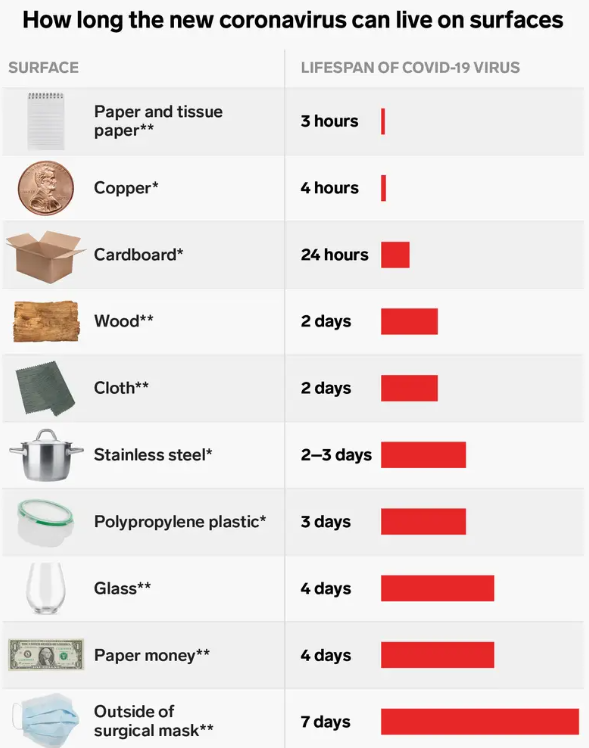
Perhaps one of the most crucial challenges for businesses, given the situation, will be the readiness of their offering. The fact is that your online platform must offer a competitive user experience. Otherwise, you will fall neither to entice nor retain shoppers.
Thus, according to Fortune:
- businesses with strong e-commerce offerings have more chances to keep the lights on in the current turmoil
- retails that have good websites will sit pretty
- e-commerce companies still playing catch up are likely to be the greatest losers.
As you can see, e-commerce companies have to be sure that their websites are more than good to remain competitive. They need to deliver the best user experience possible. If you already use a highly-customizable platform for e-commerce websites such as Magento, it will be your vantage point. However, building an e-commerce site and customize it in the right way is not a child’s play. If you don’t think that you can handle it alone, make sure to hit up a company providing Magento development services for support.
Changes to E-commerce Traffic
In the current situation, when people tend to buy basic-needs products online, as they have no other choice, grocery e-commerce is on the rise. We can see this tendency with the data provided by Rakuten Intelligence.
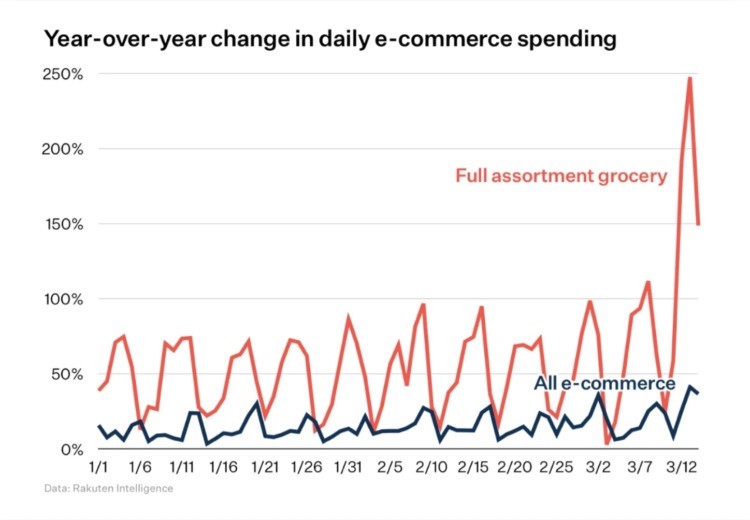
As for other e-commerce sectors, not all of them are experiencing an increase in sales. Consequently, medical goods, baby products, and bleaches are among the most much-needed categories.
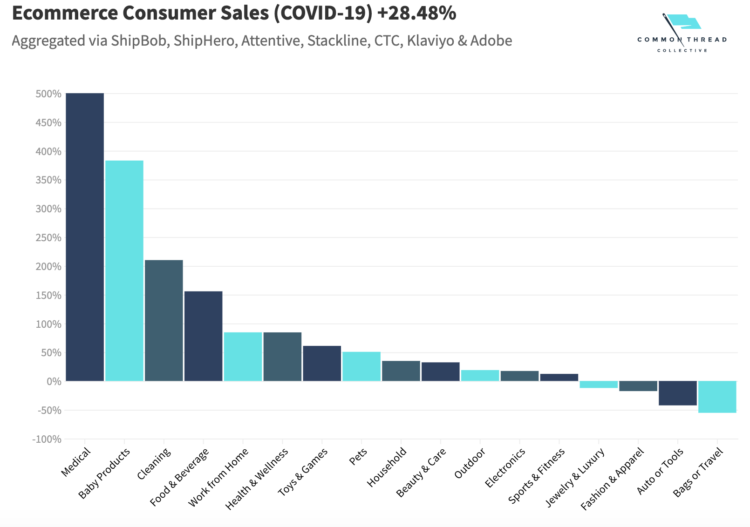
So, different e-commerce sectors will experience different impacts when it comes to the current situation. One thing is for sure: shoppers’ behavior is really changing and sometimes very severely.
Final Thought
The coronavirus pandemic and all the mess it is accompanied with will end one day and our lives will back to normal. However, this difficult period, despite the damage it has already brought both in human victims and economic downfall, opens new horizons for e-commerce company owners. Of course, if they are willing to adapt their businesses to the changing landscape. For instance, Nike has overcome the coronavirus impact on its China business and managed to increase digital sales by 30% with the help of strong tech and decisive moves.
So, the impact of COVID-19 on e-commerce businesses is difficult to predict. Some of these businesses will be closed and never recover, some of them will manage to survive during the crisis mustering their efforts, and some companies will thrive against all the odds. It all depends on the readiness of those companies to reorganize their structure and implement controversial strategies to meet the new challenges. If your website is not visible for search engines, performs bad, and doesn’t deliver the best user experience, your ability to stand out among competitors will be dramatically diminished.
Even in these uncertain times, there are still lots of opportunities to prosper.
Stay Home. Stay Safe.
Digital Web Services (DWS) is a leading IT company specializing in Software Development, Web Application Development, Website Designing, and Digital Marketing. Here are providing all kinds of services and solutions for the digital transformation of any business and website.





